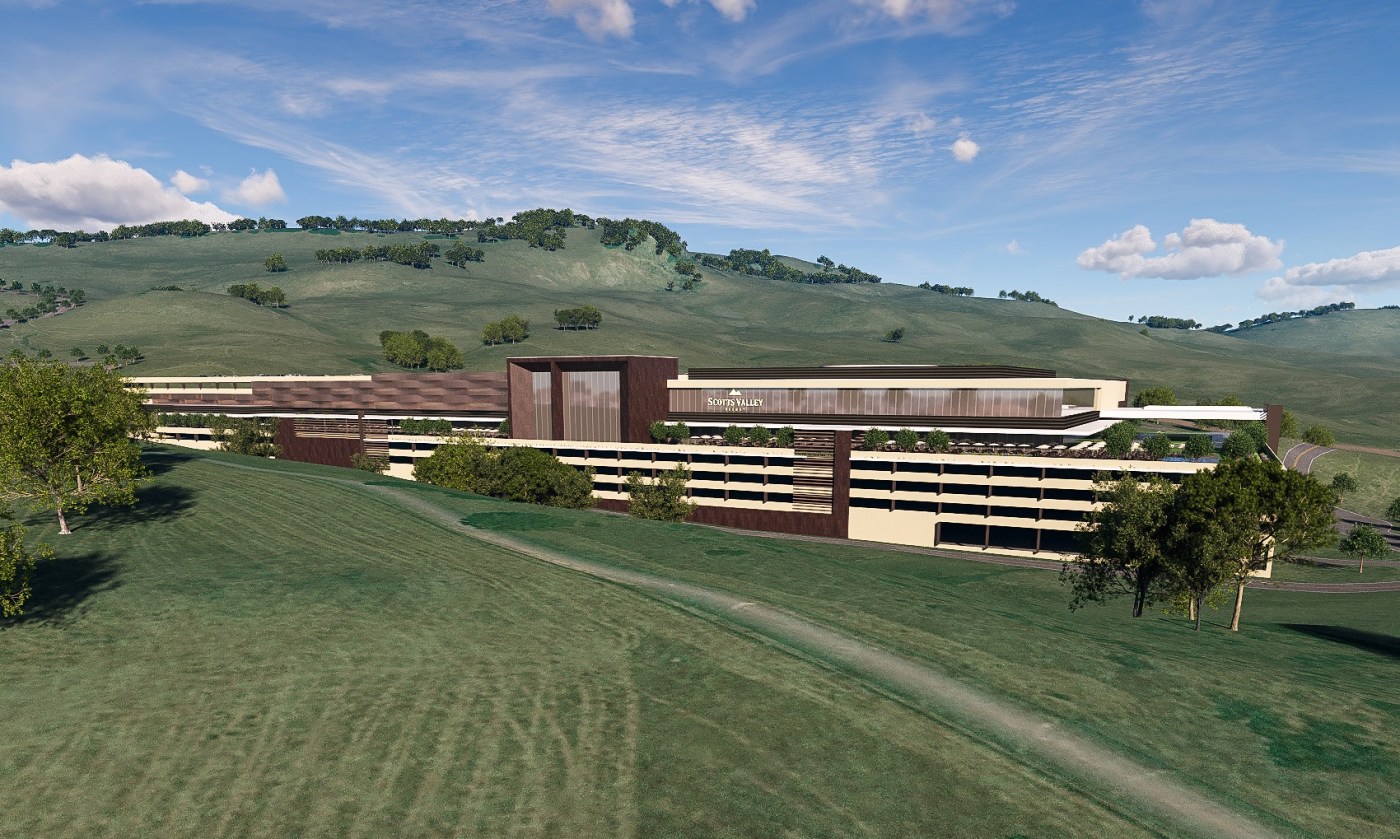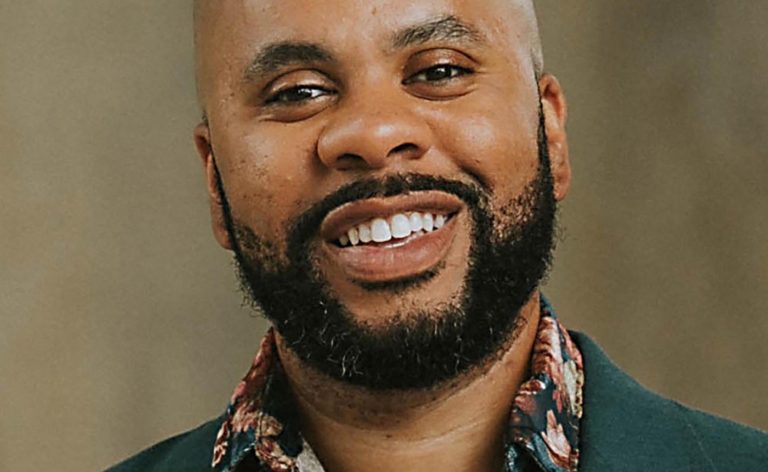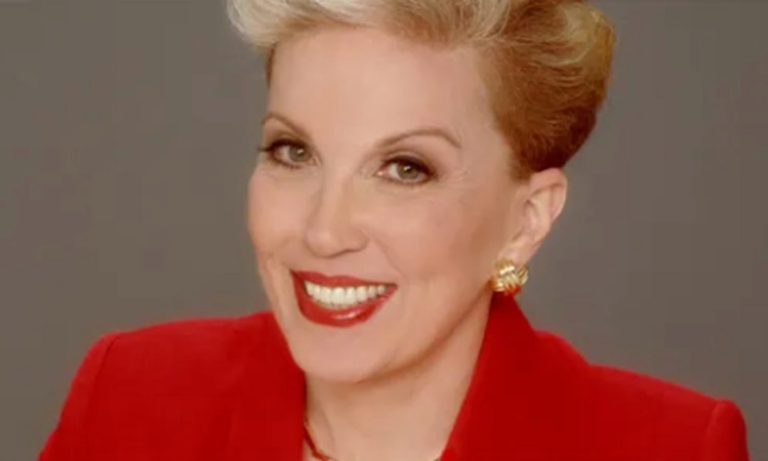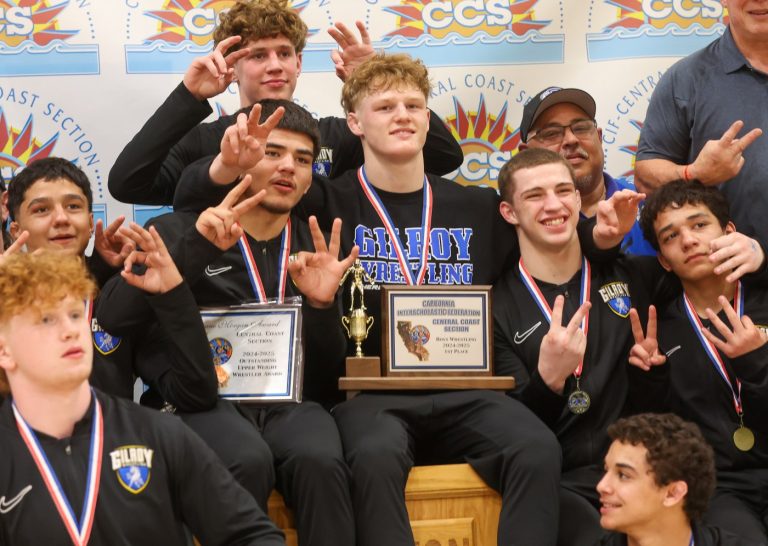Plans for a $700 million casino resort sought by the Scotts Valley Band of Pomo Indians advanced Friday with Department of Interior approval of federal trust status for a 160-acre site in Vallejo.
The trust approval was signed by Wizipan Garriott, the agency’s principal deputy assistant secretary for Indian Affairs, and disclosed to members of Congress. The decision becomes final early next week when it’s listed in the Federal Register.
“This is a special day for the Scotts Valley Band of Pomo Indians,” tribal Chairman Shawn Davis said. “For at least three decades we have been trying to reclaim our community. This allows our people to have a home and to have economic development for us and for our neighbors.”
Related Articles
Big San Jose hotel tower attracts new lender in bid to avoid foreclosure
Creative strategy, office slump, helped Goodwill find new San Jose HQ
Goodwill buys big San Jose office building in expansion for nonprofit
Cupertino hotel near famed Apple office hub lurches into loan default
Purchase of East Bay office building looms at huge price cut
The Vallejo City Council in November unanimously passed adopting a resolution authorizing City Manager Andrew Murray to execute a Cooperative Agreement with the Scotts Valley Band of Pomo Indians of California, relating to the proposed application to place land within the city in trust for the benefit of the Tribe.
The proposed project of a 400,000-square foot casino also includes the construction of 24 single-family residences, a tribal administration building, parking garage and a 45-acre biological preserve area on a 160-acre property located within and adjacent to the city boundary in Solano County, near the intersection of Interstate 80 and Highway 37. The casino facility, at a cost of $700 million, would be open 24 hours a day, seven days a week.
The land will aim to serve as the cornerstone of the Tribe’s efforts to enhance economic self-sufficiency and foster community benefits. The development is projected to create thousands of jobs in construction and ongoing operations, paying hundreds of millions of dollars in wages. Local businesses in Vallejo and Solano County are also expected to see expanded economic activity and jobs from demand induced by the project, according to a news release by the Pomo Indians.
“Our request for this land to be taken into trust began in 2016, and while the journey has been long, it has been driven by our unwavering commitment to our people,” Davis said. “This land represents not only our past but also our future. We are deeply grateful to the Department of the Interior for recognizing the importance of this land to the Scotts Valley Band of Pomo Indians and for helping us realize this dream.”
The Department of Interior approval comes just 10 days before the inauguration of Donald Trump as president for a second time. The first Trump administration rejected the tribe’s plan in 2019, but U.S. District Judge Amy Berman-Jackson ordered reconsideration on grounds the decision was “arbitrary and capricious.”
The project has been opposed by other tribes, including the Yocha Dehe Wintun Nation, a federally recognized Patwin tribe that has the Cache Creek casino-resort west of Woodland and doesn’t want competition. It has been especially critical after the Department of the Interior Bureau of Indian Affairs released its assessment of the Scotts Valley Band of Pomo Indians’ plans to bulldoze a Patwin cultural site in order to build the casino where the Pomo have no ancestral ties, calling the assessment, “a sorry excuse for an environmental review that fails to meet even the most basic requirements of federal law.”
“In their haste to justify Scotts Valley’s Project, the document’s preparers have glossed over, dismissed, or entirely failed to address obviously significant impacts to cultural resources, protected species, wetlands, water, air quality, traffic, and environmental justice, among others,” said the tribe in 2024. “And, more fundamentally, they have ignored clear evidence, in Scotts Valley’s own grading plans, that the Project simply cannot be constructed as proposed.”
On Friday the Yocha Dehe Wintun Nation condemned the Joe Biden Administration’s approval of the Project and its refusal to consult with local tribal governments throughout the process.
“We are deeply disappointed and disheartened to see this decision from the Biden Administration. It is difficult to believe that a group of politicians who claim to care about respecting tribal rights and sovereignty would give away historic Patwin homelands without ever consulting us. The hypocrisy is staggering,” said Yocha Dehe Chairman Anthony Roberts. “We were excited and hopeful when Secretary Haaland was appointed but her legacy is irreparably tarnished by this shameful, illegal decision. For Tribes like ours, nothing is more important than our ancestral homelands. To see our land and cultural resources taken away for the benefit of wealthy investors is painful beyond words.”
The Department is required to evaluate the environmental and related social and economic effects of the project. However, instead of conducting a comprehensive Environmental Impact Statement, the Department released a substantially shorter and inadequate Environmental Assessment. The assessment fails to meet even the most basic requirements of NEPA and contains incomplete, missing, and inaccurate site plans, some of which purport to show water flowing uphill.
“The Department of the Interior violated their trust responsibilities for all Tribes with this unfair decision,” continued Roberts. “Although the project was approved, our fight is not over. The Yocha Dehe Wintun Nation will take every step necessary to continue fighting for our homelands and our future.”
Matt Adams speaks to the Vallejo City Council and staff about the Scotts Valley Casino Project during a November 2024 meeting. (Thomas Gase/Times-Herald)
Yocha Dehe attorney Matthew Adams has said his clients would help the Scotts Valley Band in developing its Pomo homelands near Clear Lake, about 90 miles to the north of Vallejo, but oppose the Vallejo project because it’s within Patwin homelands and would “destroy Patwin cultural resources.”
Scotts Valley Band lawyer Patrick Bergin said litigation to block the project is possible but added he’s prepared for that and the tribe will move ahead with other necessary steps, including an intergovernmental agreement with Vallejo and a gaming compact with the state.
Project developer Gregory Lee, a prominent Southern Nevada hotel-casino operator, hailed the Interior Department’s decision, adding, “We just feel very blessed to have an opportunity to help this tribe develop something that will be a tremendous asset for the tribe and for Vallejo.”
Lee already has numerous business holdings in Vallejo. His family has ties to the community going back more than a century.
Gov. Gavin Newsom has urged the Interior Department to not approve the project, noting the Yocha Dehe claim that the Scotts Valley Band lacked a required historic connection to the Vallejo area.
However, Judge Berman-Jackson, in her two decisions favoring the Scotts Valley Band, cited evidence connecting the tribe to the Vallejo location. That included tribal travels in the 1800s to a Vallejo ranch for supplies and livestock herding on other nearby ranches by Pomo vaqueros. Berman-Jackson also said a ruling against the Scotts Valley Band because of possible harm to another tribe would frustrate a mandated goal of economic development for all Native American communities.
Although the city council voted in favor of the project in November, former Councilmember Rozzana Verder-Aliga wanted to make sure that the Pomo Indian tribe would include Vallejo residents with the plans and designs of the project.
Former Mayor Robert McConnell also had concerns, saying another casino in California in the past decade failed due to poor management. McConnell also wondered why the project needed 160 acres. Although 45 of that is going toward biological preserve area, he wondered if the 115 other acres were too much. He also asked the tribe’s attorney if Vallejo would be able to pull out of the deal or be against it despite the tribe having sovereignty on the project. McConnell also questioned if the casino would follow regulations voted on earlier in the evening concerning the new tobacco ordinance.
Davis said as the Tribe moves forward with its plans, it is committed to collaborating with the city to ensure the successful development of the land.
“We value our relationship with Vallejo and will continue working with the city to create a project that benefits both the Tribe and the surrounding community,” he added.












